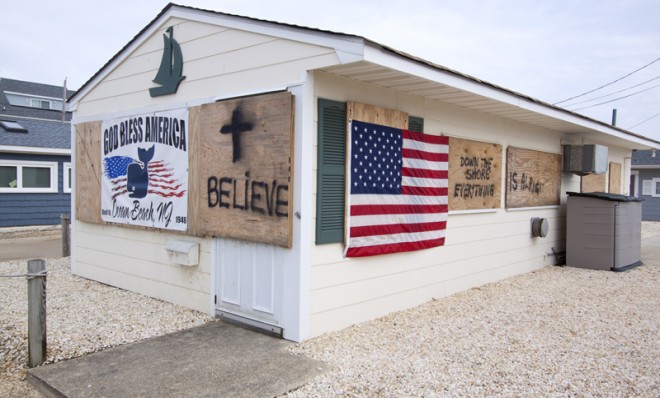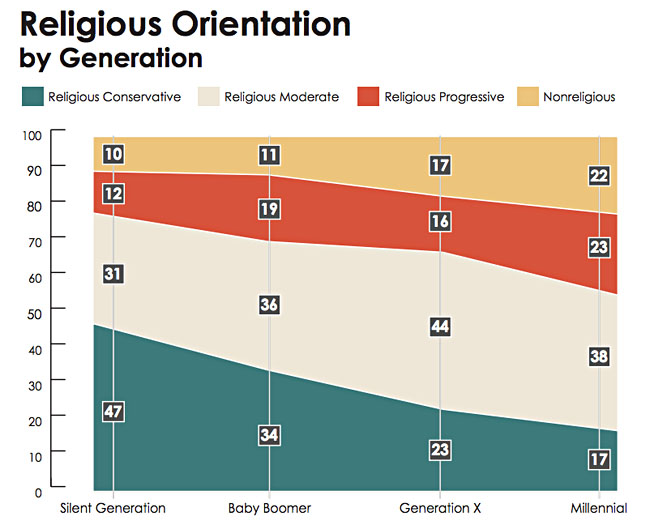The rise of the religious left
A new study shows that young people are increasingly moving toward progressive religious attitudes

A free daily email with the biggest news stories of the day – and the best features from TheWeek.com
You are now subscribed
Your newsletter sign-up was successful

When it comes to religion in politics, much of the national conversation has for years focused on the politically active religious right. That, however, might be changing, at least according to research that shows a growing religious left.
The study, conducted by the Public Religion Research Institute and the Brookings Institution, found that the religious right still makes up 28 percent of the country. The religious left only makes up 19 percent. ("Religious moderate" is still the biggest group.) Break it down by age, however, and the picture looks very different.
Older people are far more likely to be members of the religious right. Forty-seven percent of the Silent Generation, made up of Americans between the ages 66 and 88, are religious conservatives. Twelve percent of people in that age group are religious progressives.
The Week
Escape your echo chamber. Get the facts behind the news, plus analysis from multiple perspectives.

Sign up for The Week's Free Newsletters
From our morning news briefing to a weekly Good News Newsletter, get the best of The Week delivered directly to your inbox.
From our morning news briefing to a weekly Good News Newsletter, get the best of The Week delivered directly to your inbox.
Only 17 percent of millennials, on the other hand, are considered religious conservatives, while 23 percent of them are categorized as religious progressives.
This shift could already be having real-world consequences. Last month, a CNN/ORC poll found that more than two-thirds of people ages 18 to 34 support same-sex marriage. The Silent Generation? Sixty-two percent oppose it.
These changing attitudes have resulted in a slow march toward marriage equality that seemed implausible back when Bill Clinton was signing the Defense of Marriage Act into law in 1996.
Not that the GOP should be panicking — yet. For one thing, surely some young religious progressives will become more conservative as they age. And as Robby Jones notes in The Washington Post, the religious right is still a much more cohesive voting bloc, made up of 70 percent white Christians.
A free daily email with the biggest news stories of the day – and the best features from TheWeek.com
The religious left is a hodgepodge of white, black, and Latino Christians, as well as Jews, Muslims, Buddhists, and "unattached believers." Rallying white Christian conservatives over a single issue is easier than doing the same with a diverse coalition of religions and ethnicities.
Still, Jones argues, the "analysis suggests a distinctly different future pattern...: the declining appeal of religious conservatism, coupled with the increasing appeal of both a diverse religious progressivism and religious disaffiliation."
The shrinking conservative Christian base could be why some members of the GOP are rushing to push restrictive new abortion laws, writes Slate's Amanda Marcotte, comparing them to "a bunch of people grabbing as many goodies as they can before they're kicked out the door."
While it's unwise to write off the possibility of yet another revival of conservative religious mania — conventional wisdom would say that the young progressives will get more conservative as they age, though that's not necessarily true — for the time being, the signs point to a simmering down of the religion wars in the U.S. [Slate]
Keith Wagstaff is a staff writer at TheWeek.com covering politics and current events. He has previously written for such publications as TIME, Details, VICE, and the Village Voice.